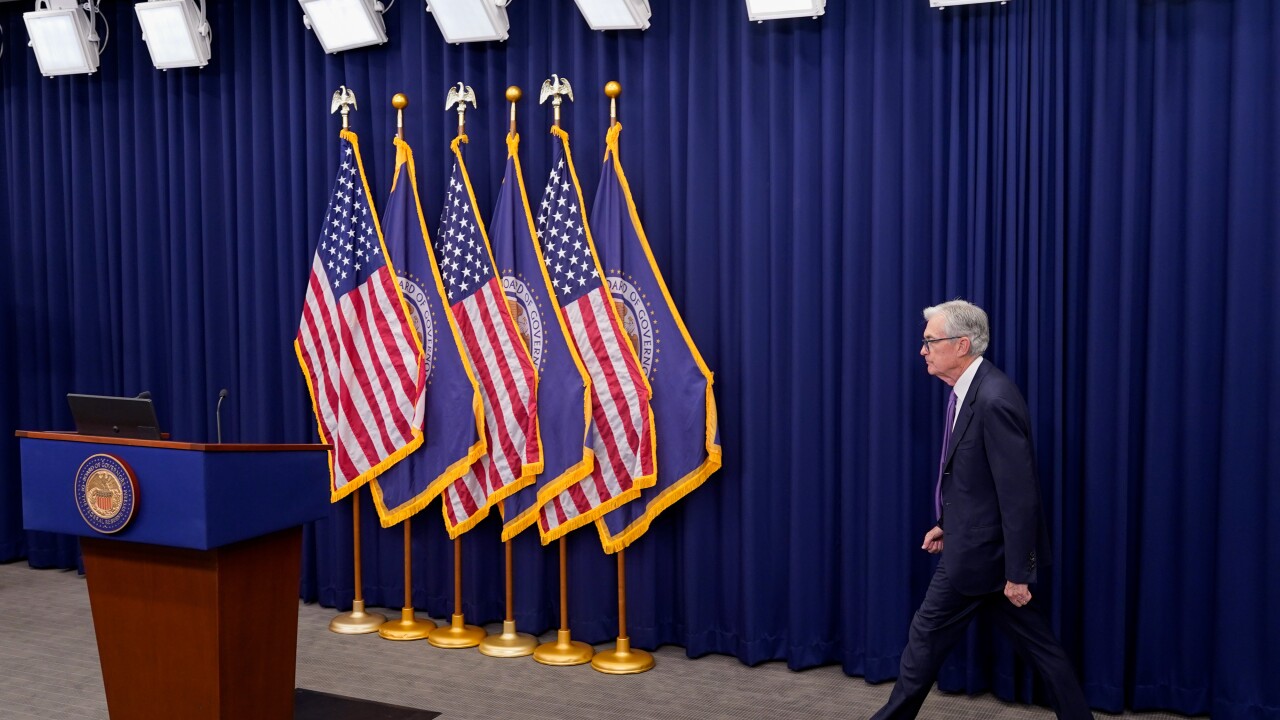Six Senate Democrats are asking JPMorgan Chase for details about its credit card debt-collection practices following a report that the megabank has filed thousands of lawsuits in recent years against delinquent customers.
In a letter
In 2015, the Consumer Financial Protection Bureau hit JPMorgan with

The consent order expired at the beginning of 2020. Last month,
Democrats on the Senate Banking Committee, including Chairman Sherrod Brown of Ohio, wrote in their letter to JPMorgan Chase CEO Jamie Dimon that “the potential resumption of this practice could affect tens of millions” of customers.
“Chase should not utilize robo-signing in pursuing these debt collection suits, or any other debt,” the lawmakers wrote.
A JPMorgan Chase spokesperson denied the claims made in the senators' letter and said the bank continues to comply with requirements in the consent order. A trained employee spends at least 30 minutes reviewing routine affidavits and up to an hour for complicated ones, the spokesperson said. Litigation is a last resort for the bank if a payment plan can’t be worked out or the borrower can't be reached, according to the bank spokesperson.
“This is just false,” the spokesperson said about the robo-signing allegations. “There is nothing automated in the way these trained employees review the affidavits.”
Robo-signing gained notoriety in the wake of the 2008 financial crisis, as banks and mortgage servicers were found to be taking shortcuts in the foreclosure process by duplicating signatures needed to ensure that loan files had been reviewed appropriately.
In their letter Monday, the Democratic senators noted that Chase has said it performs quality checks on every affidavit used in credit card lawsuits. But they asked for substantiation of that statement, saying that failure to check the information properly can lead to wage garnishment for debts that customers do not owe.
They also wrote that sloppy practices can “negatively impact consumers’ credit scores through credit reporting, making it more difficult for those consumers to obtain jobs, housing, and affordable credit — all due to Chase’s mistakes.”
Additionally, the senators asked how many suits JPMorgan Chase brought against its credit card customers between 2019 and 2021, how many employees are charged with reviewing credit card accounts before lawsuits are filed and how quality checks are performed.
And they asked JPMorgan how it has selected which cardholders to sue during the COVID-19 pandemic, as well as how the bank ensures that its collection activity does not create racial disparities.
The other Democratic senators who signed the letter were Elizabeth Warren of Massachusetts, Robert Menendez of New Jersey, Tina Smith of Minnesota, Chris Van Hollen of Maryland and Raphael Warnock of Georgia.
After the letter was publicized Monday, the Center for Responsible Lending voiced its support for the senators’ inquiry.
“If Chase continues this trend unfettered, impacted consumers will have a harder time obtaining housing and affordable credit down the road,” Lucia Mattox, the group’s director of western states outreach, said in a statement. “And history shows that consumers of color will be most affected by these predatory debt collection practices.”





